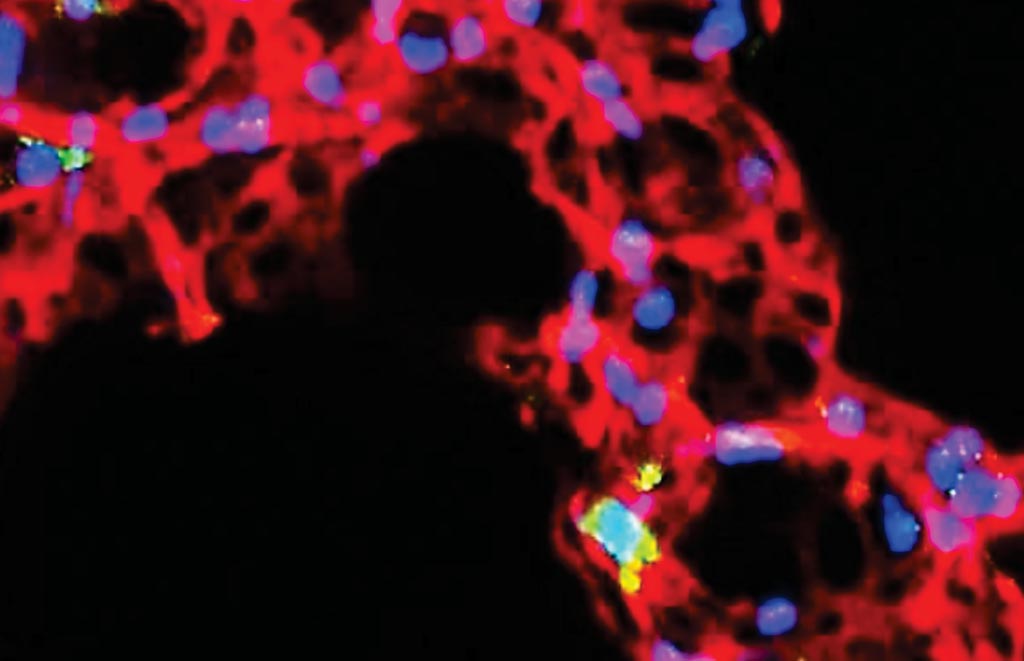Immune Signature Predicts Asthma Susceptibility
By LabMedica International staff writers
Posted on 27 Feb 2018
Asthma is a chronic inflammatory disease driven by the interplay of genetics, environmental factors and a diverse cast of immune cells. A subset of T cells has been identified whose frequency serves as early childhood immune signature that predicts the risk of developing asthma later on.Posted on 27 Feb 2018
Consistent with the "hygiene hypothesis," which holds that increased microbial exposure in the first years of life is protective for asthma, the new findings also indicate that the presence of house dust components that stimulate the innate immune system decreases asthma risk.

Image: The frequency and activity of conventional T cells serves as an early childhood immune signature that predicts the development of asthma later on. The iNKT cells are shown in green, lung vasculature in red and cell nuclei in blue (Photo courtesy of Dr. Catherine Crosby, La Jolla Institute for Allergy and Immunology).
Scientists at La Jolla Institute for Allergy and Immunology (La Jolla, CA, USA) followed 560 families from four disadvantaged urban areas who are at high risk for asthma to uncover potential risk factors that contribute to increased asthma rate in children growing up in impoverished neighborhoods. The team analyzed the frequency of different types of immune cells in blood collected from 110 one year-old study participants, the presence of immune-stimulatory components in the subjects' house dust and asked whether any of the factors correlated with an increase of asthma at age seven.
The team used peripheral blood from the participants to determine determined whether invariant natural killer T-cells (iNKT) or mucosal-associated invariant T-cells (MAIT) cell frequency at one year is correlated with the cytokine polarization of mainstream CD4+ T cells and/or the development of asthma by age seven years. Unlike conventional T cells, which belong to the adaptive arm of the immune response and take a few days before they are fully trained on a single, specific protein fragment or peptide antigen, MAIT and iNKT cells recognize molecular components common to many microbes. In addition dust samples from 300 houses were tested for iNKT cell antigenic activity.
The investigators showed that a higher MAIT cell frequency at one year of age was associated with a decreased risk of asthma by age seven years. The frequency of MAIT cells was associated with increased production of interferon-gamma (IFN-γ) by activated CD4+ T cells from the cohort. The iNKT cell antigenic activity in bedroom dust samples was associated with higher endotoxin concentration and also with reduced risk of asthma.
Mitchell Kronenberg, PhD, president and chief scientific officer of La Jolla Institute and senior author of the study, said, “We found what I would consider very strong biomarkers for those children who are most likely to develop asthma as they get older. Children who, at the age of one, had a higher frequency of so called MAIT cells appear to be less likely to develop asthma by the age of seven.” The study was published on February 5, 2018, in the Journal of Immunology.
Related Links:
La Jolla Institute for Allergy and Immunology









 Analyzer.jpg)



